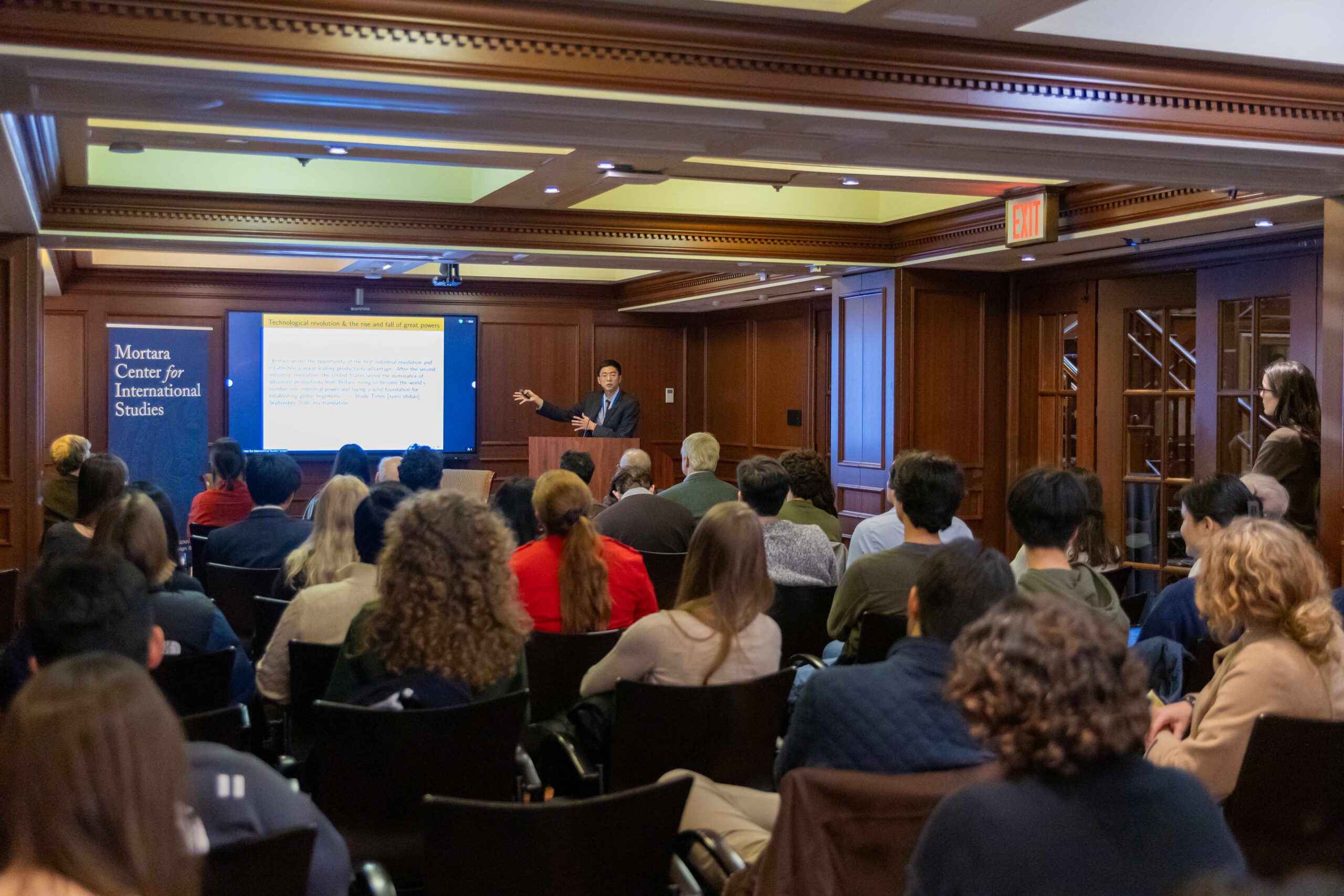Technology Diffusion, Not Innovation: Lepgold Prize Winner Jeffrey Ding on the US-China AI Race
By Robert Chong (SFS ’28) —
On Wednesday, November 19th, Professor Jeffrey Ding from The George Washington University received the prestigious Georgetown University Lepgold Book Prize at the Mortara Center for International Studies from the 2025 Award Committee, Diana Kim, Andrew Bennett, and Erik Voeten. This award recognizes the best book in international relations published in 2024. Professor Ding presented findings from his prize-winning book, Technology and the Rise of Great Powers: How Diffusion Shapes Economic Competition (Princeton University Press).
In Technology and the Rise of Great Powers, Professor Jeffrey Ding dissects current great power rivalry between the US and China through the lens of technological competition. While headlines often obsess over who invents a breakthrough first, Professor Ding draws on historical evidence from past industrial revolutions to offer a different metric for success. He argues that in evaluating the ability of an innovation to shift global power dynamics, the mere creation of technology is secondary; the true determinant of a nation’s rise is the adoption of that technology at scale across its entire economy.
I found Professor Ding’s application of this framework to the current US-China AI race particularly intriguing. According to his “diffusion model,” determining which country is “ahead” requires looking beyond cutting-edge capabilities to see how deeply the technology has permeated different sectors of the economy. By this metric, Professor Ding concludes that the US currently leads China in several key areas, even though Chinese AI model capabilities are generally on par with their American counterparts.
Following the presentation, a lively Q&A session featured questions from the audience, most from Georgetown students (from undergraduate to PhD). One inquiry regarding how cultural differences might drive disparities in tech adoption stood out to me. Having lived in both China and the US, this question resonated with my personal experience, prompting me to reflect on how distinct societal norms can accelerate or hinder the spread of new technologies.
During the cocktail reception, I had the chance to discuss these cultural variables with Professor Ding personally. He was incredibly receptive to student perspectives, and our conversation reinforced the idea that understanding great power competition requires looking beyond the technology itself to the societies that adopt it.
Robert Chong is a member of the Class of 2028 in the School of Foreign Service and intends to major in Science, Technology, and International Affairs with minors in Japanese and Computer Science. Raised in Shanghai, China, his experiences growing up in an international city and multicultural family sparked an interest in cross-cultural interactions. As a MURF, Robert works with Professor Kwame Otu to analyze the sources and implications of electronic waste buildup in Ghana. On campus, he is involved in the Georgetown Journal of International Affairs, the Georgetown International Relations Club, and the Georgetown Artificial Intelligence Association. In his free time, Robert enjoys playing tennis, discovering new restaurants with friends, and journaling!


